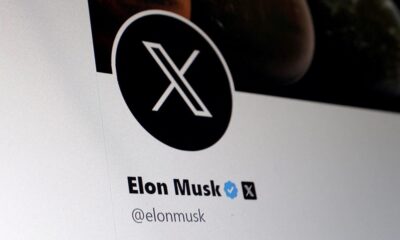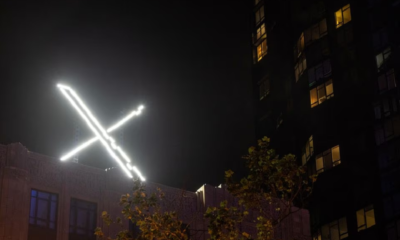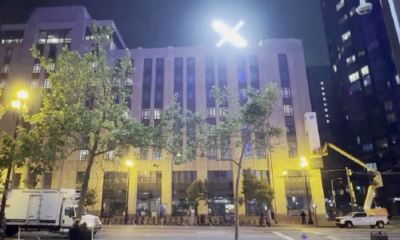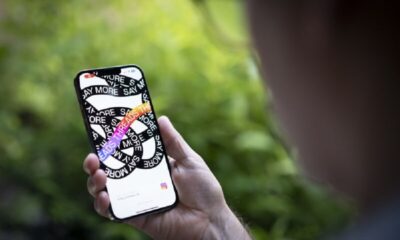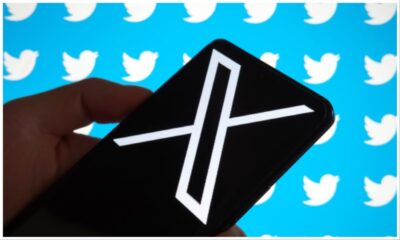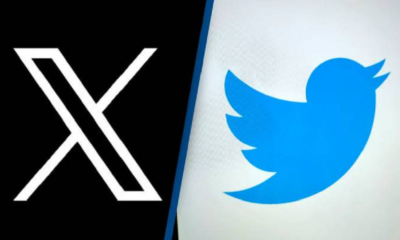Science & Technology
Blue ticks disappear as Musk attacks NY Times

The New York Times has lost its blue tick on Twitter after it said it would not pay to remain verified.
This comes as Twitter starts removing verification badges from accounts which already had a blue tick, after announcing they would be part of a paid subscription from 1 April.
The New York Times, along with several other organizations and celebrities, said they would not pay for the tick.
It prompted Elon Musk to launch a volley of insults at the newspaper, BBC reported.
“The real tragedy of @NYTimes is that their propaganda isn’t even interesting”, Musk, who owns Twitter, wrote on the platform.
“Also, their feed is the Twitter equivalent of diarrhea. It’s unreadable,” he added.
There has been no official comment from Twitter and the New York Times has not responded to Musk’s comments.
Under Twitter’s new rules, blue ticks which once showed official, verified accounts, will start to be removed from accounts which do not pay for it.
Organizations seeking verification badges instead have to pay a monthly fee of $1,000 (£810) to receive a gold verification tick, while individual accounts must pay $8 (£6.40) a month for a blue one.
As well as not paying the subscription fee, the New York Times said it would also not pay for the verification of its journalists’ Twitter accounts, apart from in “rare instances where this status would be essential for reporting purposes”, a spokesperson said.
Following the announcement, the newspaper, which has almost 55 million Twitter followers, lost its verification badge.
But it is unclear whether all organizations must sign up to the subscription service in order to remain verified.
Ten thousand of the most-followed organizations on Twitter will be exempt from the rules, the New York Times reports, citing an internal Twitter document.
Since December, Twitter has introduced three different coloured verification badges. Gold ticks are used for business organizations, grey ticks are for government-affiliated accounts or multilateral organizations, and blue ticks are used for individual accounts which subscribe to Twitter Blue.
Many news organizations including CNN, the Los Angeles Times and the Washington Post – companies which also said they will not pay for Twitter verification – now have gold ticks.
Other New York Times accounts, such as New York Times Arts and New York Times Travel, also have gold ticks.
The removal of the blue ticks seems to be happening gradually. This could be because it is largely a manual process, according to The Washington Post, citing former employees of the company.
Science & Technology
Meta releases new AI model Llama 4
Meta said in a statement that the Llama 4 Scout and Llama 4 Maverick are its “most advanced models yet” and “the best in their class for multimodality.”

Meta Platforms on Saturday released the latest version of its large language model (LLM) Llama, called the Llama 4 Scout and Llama 4 Maverick.
Meta said Llama is a multimodal AI system. Multimodal systems are capable of processing and integrating various types of data including text, video, images and audio, and can convert content across these formats.
Meta said in a statement that the Llama 4 Scout and Llama 4 Maverick are its “most advanced models yet” and “the best in their class for multimodality.”
Meta added that Llama 4 Maverick and Llama 4 Scout will be open source software. It also said it was previewing Llama 4 Behemoth, which it called “one of the smartest LLMs in the world and our most powerful yet to serve as a teacher for our new models.”
Big technology firms have been investing aggressively in artificial intelligence (AI) infrastructure following the success of OpenAI’s ChatGPT, which altered the tech landscape and drove investment into machine learning.
The Information reported on Friday that Meta had delayed the launch of its LLM’s latest version because during development, Llama 4 did not meet Meta’s expectations on technical benchmarks, particularly in reasoning and math tasks.
The company was also concerned that Llama 4 was less capable than OpenAI’s models in conducting humanlike voice conversations, the report added.
Meta plans to spend as much as $65 billion this year to expand its AI infrastructure, amid investor pressure on big tech firms to show returns on their investments.
Science & Technology
‘Massive cyberattack’ brings down Elon Musk’s X
Digital Trends reported Tuesday that there are reports suggesting X is still having issues
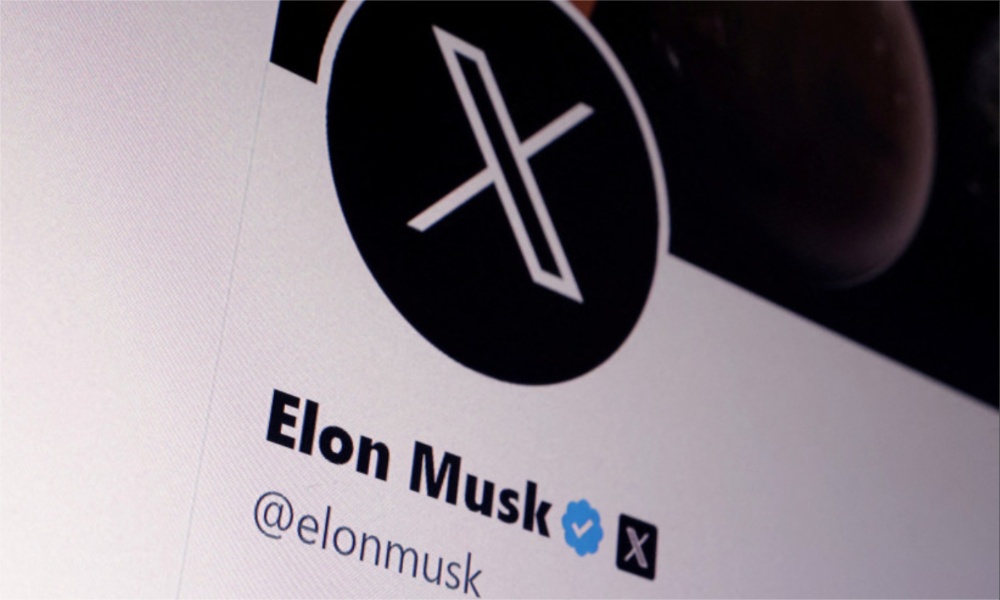
Social media platform X went down intermittently on Monday, with owner Elon Musk blaming an unusually powerful cyberattack.
“We get attacked every day, but this was done with a lot of resources. Either a large, coordinated group and/or a country is involved,” Musk said in a post on X on Monday.
He did not clarify exactly what he meant by “a lot of resources” and his comments drew skepticism from cybersecurity specialists, who pointed out that attacks of this nature — called denials of service — have repeatedly been executed by small groups or individuals.
X faced intermittent outages, according to Downdetector, Reuters reported.
Digital Trends meanwhile reported Tuesday that there are reports suggesting X is still having issues.
Internet industry experts have said X was hit by several waves of ‘denial of service’ throughout Monday.
Musk said in an interview with Fox Business Network’s Larry Kudlow the cyberattack came from IP addresses originating in the Ukraine area.
An industry source told Reuters he disputed Musk’s account, saying that large chunks of the rogue traffic bombarding X could be traced back to IP addresses in the United States, Vietnam, Brazil and other countries, and that the amount of rogue traffic coming directly from Ukraine was “insignificant.”
In any case, denial of service attacks are notoriously hard to trace back to their authors and the IP addresses involved rarely provide any meaningful insight into who was behind them, Reuters reported.
Musk has joined U.S. President Donald Trump, whom he serves as an adviser, in criticizing Ukraine’s continued efforts to fight off a Russian invasion.
Musk said on Sunday that Ukraine’s front line “would collapse” without his Starlink satellite communications service, though he said he would not cut off Ukraine’s access to it.
Science & Technology
NASA says ‘city killer’ asteroid has a 3.1 % chance of striking Earth in 2032
Despite the rising odds, experts say there is no need for alarm
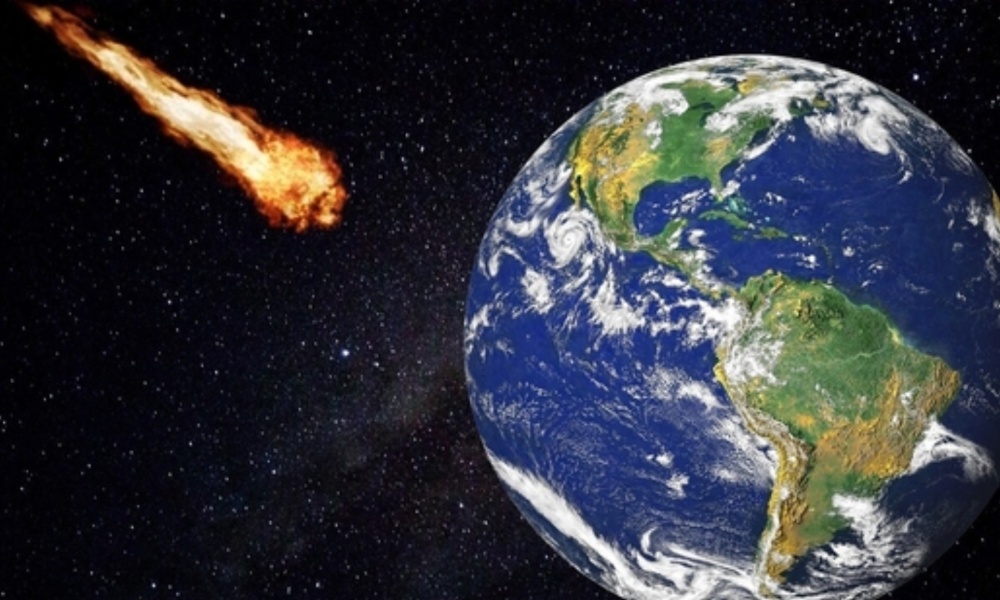
An asteroid that could level a city now has a 3.1-percent chance of striking Earth in 2032, according to NASA data released Tuesday — making it the most threatening space rock ever recorded by modern forecasting.
Despite the rising odds, experts say there is no need for alarm. The global astronomical community is closely monitoring the situation and the James Webb Space Telescope is set to fix its gaze on the object, known as 2024 YR4, next month.
“I’m not panicking,” Bruce Betts, chief scientist for the nonprofit Planetary Society told AFP.
“Naturally when you see the percentages go up, it doesn’t make you feel warm and fuzzy and good,” he added, but explained that as astronomers gather more data, the probability will likely edge up before rapidly dropping to zero.
2024 YR4 was first detected on December 27 last year by the El Sauce Observatory in Chile.
Astronomers estimate its size to be between 130 and 300 feet (40–90 meters) wide, based on its brightness. Analysis of its light signatures suggests it has a fairly typical composition, rather than being a rare metal-rich asteroid.
The International Asteroid Warning Network (IAWN), a worldwide planetary defense collaboration, issued a warning memo on January 29 after the impact probability had crossed one percent. Since then, the figure has fluctuated but continues to trend upward.
NASA’s latest calculations estimate the impact probability at 3.1 percent, up from 1.6 percent last month, with a potential Earth impact date of December 22, 2032.
Richard Moissl, head of the European Space Agency’s planetary defense office, which puts the risk slightly lower at 2.8 percent told AFP that this “is not a crisis at this point in time. This is not the dinosaur killer. This is not the planet killer. This is at most dangerous for a city.”
If the risk rises over 10 percent, IAWN would issue a formal warning, leading to a “recommendation for all UN members who have territories in potentially threatened areas to start terrestrial preparedness,” explained Moissl.
Unlike the six-mile-wide (10-kilometer-wide) asteroid that wiped out the dinosaurs 66 million years ago, 2024 YR4 is classified as a “city killer” — not a global catastrophe, but still capable of causing significant destruction.
Its potential devastation comes less from its size and more from its velocity, which could be nearly 40,000 miles per hour if it hits.
If it enters Earth’s atmosphere, the most likely scenario is an airburst, meaning it would explode midair with a force of approximately eight megatons of TNT — more than 500 times the power of the Hiroshima bomb.
But an impact crater cannot be ruled out if the size is closer to the higher end of estimates, said Betts.
The potential impact corridor spans the eastern Pacific, northern South America, the Atlantic, Africa, the Arabian Peninsula, and South Asia — though Moissl emphasized it is far too early for people to consider drastic decisions like relocation.
The good news: there’s ample time to act.
NASA’s 2022 DART mission proved that spacecraft can successfully alter an asteroid’s path, and scientists have theorized other methods, such as using lasers to create thrust by vaporizing part of the surface, pulling it off course with a spacecraft’s gravity, or even using nuclear explosions as a last resort. — Agence France-Presse
-

 Latest News5 days ago
Latest News5 days agoItaly to welcome 700 Afghan refugees for resettlement
-

 Sport5 days ago
Sport5 days agoAfghanistan’s national futsal team heads to Morocco
-

 Latest News5 days ago
Latest News5 days agoMinistry of Refugees slams neighboring countries for mistreatment and forced removals of Afghans
-

 Sport4 days ago
Sport4 days agoAfghanistan win U-19 cricket series despite rain-impacted loss to Nepal
-
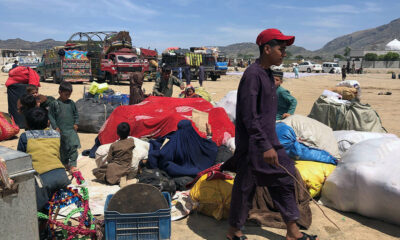
 Latest News4 days ago
Latest News4 days agoPakistan expels thousands of Afghan nationals in fresh drive, says UNHCR
-
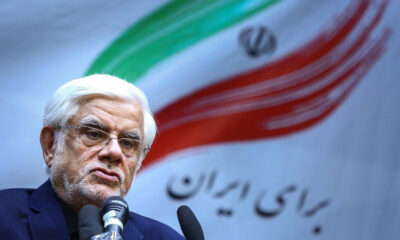
 Latest News4 days ago
Latest News4 days agoIran’s Vice President advocates stronger ties with neighbors, especially Afghanistan
-
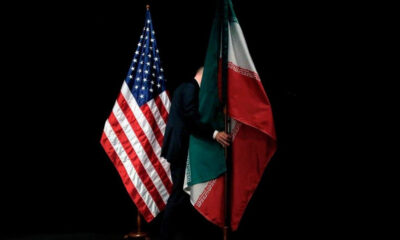
 Regional4 days ago
Regional4 days agoUS energy secretary sees tighter sanctions on Iran without deal
-
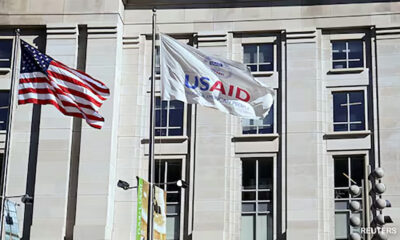
 Latest News4 days ago
Latest News4 days agoTrump administration moves to restore some terminated foreign aid programs, sources say


